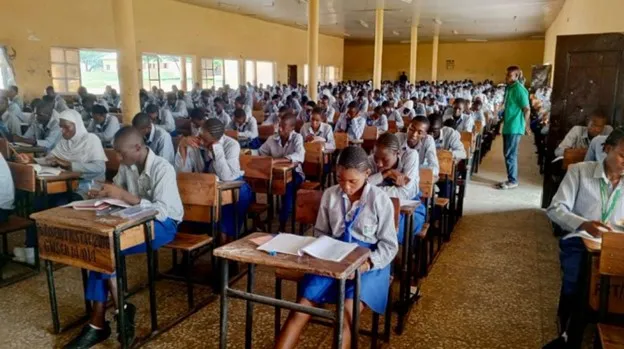The Junior Certificate of Education (JCE) exams in Malawi serve as a critical educational milestone for students transitioning from primary to secondary school. However, over the years, the country has witnessed an alarmingly high failure rate in these exams. In 2024, for example, around 154,504 students sat for the exams, but only about 110,002 passed, translating to a pass rate of approximately 71.2%. This decline in pass rates is reflective of deeper systemic challenges affecting the education sector in Malawi.
The causes of poor performance in the JCE exams are multi-faceted. Factors such as laziness, lack of well-experienced teachers, inadequate reading culture, poverty, and the absence of role models are all significant contributors to students’ failure. In this article, we explore these causes in detail and propose remedies that could help address these challenges. This article also serves as an informative resource for Malawians and international readers, shedding light on the urgent need for reform in the educational sector.
1. Laziness and Lack of Motivation
One of the most apparent causes of failure in JCE exams is the lack of motivation and laziness among students. Many students do not fully understand the gravity of their education, viewing exams as mere obstacles rather than stepping stones to their future. This often results in poor study habits, inadequate preparation, and a general sense of apathy towards schoolwork.
Root Causes of Laziness
- Cultural Attitudes: In some areas, students may not see education as essential for their future, especially when traditional farming or other occupations are perceived as more immediately rewarding.
- Peer Pressure: Peer groups that prioritize non-academic pursuits such as sports, entertainment, and social gatherings can distract students from their studies.
Remedies for Laziness
- Encouraging a Growth Mindset: Schools and communities must focus on fostering a growth mindset among students. This mindset will encourage students to see failures as opportunities to learn and improve, rather than as insurmountable barriers.
- Career Guidance and Counseling: Providing career counseling and guidance early in a student’s educational journey can motivate them to see the importance of education and its role in securing future job opportunities.
- Parental Involvement: Parents should take an active role in their children’s academic journey, offering support and creating a home environment conducive to learning.
2. Lack of Well-Experienced Teachers
Another major issue facing Malawian students is the shortage of well-trained and experienced teachers. According to the Malawi National Examinations Board (MANEB), many students struggle in subjects due to inadequate teaching, which hampers their ability to grasp essential concepts necessary for the exams.
Root Causes of Teacher Shortage and Inexperience
- Low Teacher Salaries: Teachers in Malawi often work under difficult conditions and are paid poorly. This can result in low morale, and many teachers may seek employment elsewhere, further exacerbating the shortage.
- Insufficient Training: Many teachers in rural areas are underqualified or lack advanced pedagogical training, which impacts the quality of instruction provided to students.
Remedies for Teacher Shortages
- Improved Teacher Training: The government should invest more in teacher training programs to ensure that educators are better equipped to handle modern teaching methods, technology integration, and diverse classroom settings.
- Incentivizing the Teaching Profession: Providing better salaries, housing allowances, and other incentives can help attract and retain talented educators, especially in rural areas where the need is greatest.
- Teacher Professional Development: Continuous professional development programs should be mandatory for teachers, enabling them to stay updated with the latest educational trends and teaching strategies.
3. Lack of a Reading Culture
In Malawi, the lack of a strong reading culture is a critical barrier to academic success. Many students, particularly those from rural areas, struggle to improve their literacy and comprehension skills, which are essential for passing exams like the JCE.
Root Causes of Poor Reading Habits
- Limited Access to Books and Learning Resources: In many areas, especially in rural parts of the country, students have limited access to books, both at home and in schools. This hampers their ability to practice reading and develop their literacy skills.
- Focus on Rote Learning: The Malawian education system often prioritizes rote learning over critical thinking and problem-solving, which discourages students from actively engaging with learning materials.
Remedies for Improving the Reading Culture
- Promoting Library Access: The government and non-governmental organizations (NGOs) should invest in building libraries and providing free access to books for students. Programs that encourage students to read outside of their textbooks can also foster a love for reading.
- Teacher-Led Reading Programs: Schools should incorporate regular reading exercises into their curriculum, allowing students to engage with various genres of books, including fiction, non-fiction, and academic resources.
- Reading Competitions and Clubs: Organizing reading competitions and establishing reading clubs can motivate students to read more and share their ideas with peers.
4. Poverty and Financial Challenges
Poverty is a major contributing factor to poor performance in the JCE exams. Many students in Malawi come from impoverished backgrounds, where they struggle to afford basic school supplies such as uniforms, books, and transportation. This financial strain often affects their focus and ability to perform well in exams.
Root Causes of Poverty in Education
- Inadequate Family Resources: Many families cannot afford to send their children to school regularly, and in some cases, children are forced to drop out of school to support their families.
- Poor School Infrastructure: Schools in rural areas are often poorly funded, with inadequate classrooms, outdated learning materials, and a lack of access to technology.
Remedies for Addressing Poverty in Education
- Government Scholarships and Subsidies: The government should expand scholarship programs and offer financial assistance to students from disadvantaged backgrounds. This could help reduce the burden on families and ensure that children are not deprived of education due to financial constraints.
- Community Support Programs: Local communities and NGOs can play a pivotal role in supporting students through community-run initiatives, such as school supply drives and mentorship programs.
- Improved School Infrastructure: By investing in better school facilities and technology, the government can create a more conducive learning environment that benefits both teachers and students.
5. Lack of Role Models
The absence of strong role models in the community is another factor that contributes to the poor performance of students in Malawi’s educational system. Without visible examples of success in education, many students are not motivated to work hard and achieve their academic goals.
Root Causes of Lack of Role Models
- Limited Exposure to Successful Individuals: Many students in rural areas have limited access to successful professionals or role models who can inspire them to pursue education as a means of achieving success.
- Social and Cultural Barriers: In some communities, there are societal pressures that discourage educational achievement, particularly for girls, who are often expected to prioritize domestic duties over academic pursuits.
Remedies for Providing Role Models
- Promoting Success Stories: The government and NGOs should actively promote the stories of successful Malawian individuals who have overcome adversity through education. These stories can serve as inspiration for students to work harder and persevere in their studies.
- Mentorship Programs: Establishing mentorship programs that connect students with professionals in various fields can help students understand the practical benefits of education and provide them with valuable guidance.
- Community Leaders as Advocates: Community leaders, including religious leaders, local politicians, and business figures, should take an active role in encouraging education and serving as role models for young people.
Conclusion
The challenges facing students in Malawi’s Junior Certificate of Education exams are complex, and addressing these issues will require a multi-faceted approach. By focusing on improving motivation, teacher quality, reading culture, access to education, and the presence of positive role models, Malawi can begin to reverse the current trends in education and help its students succeed.
The government, teachers, parents, and local communities all have a role to play in addressing these causes. It is only through collective action that Malawi can ensure that its students are prepared to meet the demands of the future and contribute to the country’s development.
If you found this article helpful, please share it with others, and explore more on education in Malawi and beyond.


